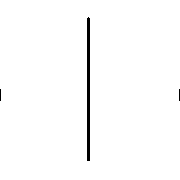|
objectively bad posted:"Ask him the Sanskrit word for war, and what its translation is" (in Louise's office after he's told her she's not going to Montana, as he's about to leave to go speak to another linguist) I do wonder why she says "weapon" in the first place though. Like she knows it's ambiguous and they don't know what it is, so why not just say it's "use tool" and avoid the drama altogether?
|
|
|
|

|
| # ? Apr 27, 2024 16:08 |
|
Maxwell Lord posted:I do wonder why she says "weapon" in the first place though. Like she knows it's ambiguous and they don't know what it is, so why not just say it's "use tool" and avoid the drama altogether? I might be forgetting something but I don't think we find out where the "weapon" translation comes from. I think the first time it comes up is when Louise asks the Heptapods what they want and they say "offer weapon". At that point the different countries were still collaborating, so the system might not have been using a translation Louise came up with?
|
|
|
|
The thread has pretty much cooled right off but I had something I wanted to discuss so hopefully there are a few people that are still gonna read it and add their thoughts. The way the scene where General Zhang passes the information to Louise felt really 'off' to me when I watched it but I didn't focus on it at the time to carry on enjoying the film. That evening I was reflecting and I wondered if there is a much greater point here than it just being "the solution" to the challenge that drives the latter part of the film - how to stop the Chinese attacking. The quick and easy reading of this scene is that its information in the future that Louise needs now and thus enables her to save the day, but most people would write this scene very differently. Earlier in the thread this was discussed in relation to closed loop theories etc and I don't want to get into that. Yes, if Shang knows that this needs to be done to give Louise the information for her to use in the past then he has to pass it on.... >>> But why/how does Shang know this information when this scene 'happens'? Its an easy get-out for the film, and it gives a better resolution than Louise just remembering it. It also indicates some form of journey/discovery for her that would otherwise not be visually obvious. But I couldn't shake the idea that there is more here because of the way it played out..... Is it shown in the film that many other people now have this 'time vision' from learning the language? I know there were bits showing her teaching etc, but can we assume other people actually have this ability now? If that was explicitly communicated then I missed it. So.... >>> Has Shang learned the language from the Aliens independently (and first!), and he is now the one with the power in the future, where he can see that its in his/China's interest to give Louise very detailed instructions on his phone number, his wifes dying words etc to make her do what he wants. We are shown in the film that the Chinese are getting closer to learning the language before turning hostile, so I wondered if they obtained the 'weapon' and were then acting as puppet masters for the rest of the film, where we think its the American's story but they are actually minor players?
|
|
|
|
It should be noted that, as an element that didn't appear at all in the original short story, Shang is 100% hollywood, and thus thinking too hard about his part in the story is probably not a good idea.
|
|
|
|
Louise is a famous author by then, so she presumably wrote or publicly spoke about the information that she used to convince the Chinese not to attack. Shang, who obviously has interest in the subject because he's the guy who's wife's dying words were mysteriously read back to him, then puts 2 and 2 together and understands that he has to pass the information to Louise at some point.
|
|
|
|
ChrisXP posted:Is it shown in the film that many other people now have this 'time vision' from learning the language? I know there were bits showing her teaching etc, but can we assume other people actually have this ability now? If that was explicitly communicated then I missed it. So....
|
|
|
|
Basebf555 posted:Louise is a famous author by then, so she presumably wrote or publicly spoke about the information that she used to convince the Chinese not to attack. Shang, who obviously has interest in the subject because he's the guy who's wife's dying words were mysteriously read back to him, then puts 2 and 2 together and understands that he has to pass the information to Louise at some point.
|
|
|
|
One explanation is that causal loops sort of "will' themselves into existence, with humans acting as unwitting agents. So in this conversation: "You did something remarkable, something not even my superior has done" - Zhang "What's that?" - Loise "You changed my mind. You're the reason for this unification. All because you reached out to me on my private number" - Zhang So far none of that is outside the realm of a normal conversation. But Zhang has to say that in order to prompt Louise to say the following: "Your private number? General I don't know your private number" Louise says this because she earnestly in that moment isn't recalling the number. Remember that she sort of phases in and out of time periods, memory-wise. She knew the number back when she called it, but is forgetting it momentarily. The general then shows her his phone and says "Now you know. I do not claim to know how your mind works, but I believe it was important for you to say that." Zhang is giving her his number as an act of friendship in that moment, basically to say "that was amazing what you did, give me a call sometime so we can chat". He has no idea how fate is acting on him in that moment, he isn't assuming that that information is being delivered by him to Louise so that she can use it in the past. He just assumes that she once somehow had access to his number and then forgot it. Naturally if someone did to you what Louise did to Zhang, you might give them your number just so you can, like, talk it out. Louise says, "I called you didn't I?" "Yes you did. I'll never forget what you said. You told me my wife's dying words. Thank you." So, Zhang in this way is basically acting as fate's vessel.
|
|
|
|
You're trying to find sense and logic in something that wasn't made to be logical. It just happens that way because the movie script writers wanted some memorable scenes, beyond what the source material gave them, and went "time loop" despite having decided time can't be changed.
|
|
|
|
Mithaldu posted:You're trying to find sense and logic in something that wasn't made to be logical. It just happens that way because the movie script writers wanted some memorable scenes, beyond what the source material gave them, and went "time loop" despite having decided time can't be changed. Louise experiencing moments of time out of sequence while she learns heptapod doesn't really break determinism. To Heptapods, who have experienced all of time simultaneously, the phone call always occurred. All the events of the past could only lead to that moment and every moment of the future relied on that moment happening as it did.
|
|
|
|
objectively bad posted:Louise experiencing moments of time out of sequence while she learns heptapod doesn't really break determinism. To Heptapods, who have experienced all of time simultaneously, the phone call always occurred. All the events of the past could only lead to that moment and every moment of the future relied on that moment happening as it did. Heptapods experience the present with the perspective humans gain with time. The time loop is a different sort of thing.
|
|
|
|
Mithaldu posted:You're trying to find sense and logic in something that wasn't made to be logical. It just happens that way because the movie script writers wanted some memorable scenes, beyond what the source material gave them, and went "time loop" despite having decided time can't be changed. How does it not make sense?
|
|
|
|
objectively bad posted:Louise experiencing moments of time out of sequence while she learns heptapod doesn't really break determinism. Jewmanji posted:How does it not make sense?
|
|
|
|
Mithaldu posted:Ugh, i can't be arsed to spend a full huge post on a hollywood bastardization of a solidly written and thought-through story. Short version: Time loops of any kind are incompatible with a fully deterministic non-branching universe; and saying "any given point in time is resolved by its past and its future as well" just means "it's magic yo" and literally anything could happen and there's no reasoning to be had beyond "script writers willed it". There's a "script writing" layer within the universe as it's presented to us (by the script writers). This is the script the heptapods are reading from. Beings that experience time sequentially think they're improvising because they don't even know a script exists...they're just up on stage singing and dancing. Louise is handed a script by the heptapods, she starts flicking through and reading a few pages out of sequence. She's still reading from a script, just not in sequence. We have two options: accept the existence of a knowable script and examine whether the existence of that script is consistent with the reality as it's presented, or we reject the existence of a knowable script and and support that rejection with examples of characters experiencing alternate time lines. The Shang future sequence fits perfectly within the script as Louise & the heptapods have experienced it. Rejecting the idea of a knowable non-branching timeline is rejecting the underlying premise of the movie. That's what the entire plot boils down to: Louise coming to terms with the loss of free will (or rather, the perception of free will) that happens when the script is revealed to her. . The idea that the actual script writers are the only ones exerting their agency on the Arrival universe is a pretty boring and straight forward discussion. That's the case in every fictional universe and ignoring the script writers' agency is the only way anyone can possibly enjoy works of fiction.
|
|
|
|
objectively bad posted:ignoring the script writers' agency is the only way anyone can possibly enjoy works of fiction. E: Maybe try to answer for yourself: Is that universal causal? Is it deterministic? What do the answers you gave to these question mean for "perceiving all time at once"? Mithaldu fucked around with this message at 13:27 on Apr 6, 2017 |
|
|
|
Mithaldu posted:Nope, in almost all works of fictions the writers lay down certain rules of play that allow the audience to anticipate things. In this one the writers explicitly hosed up the original premise of the source material and created a universe without rules, except for "anything can happen even if it isn't causal" and "none of the actors can actually affect anything". You're highlighting my point pretty well here. You're rejecting the rules of the fictional universe without explaining why. You haven't even explained why the events in the movie are incompatible with the rules of the universe as it's presented in the short story. As far as I can tell each story fits perfectly within the other's rules. The events are altered slightly, but the premise of a knowable future and the implication of having the known future revealed to you is still the same. The only way your complaint makes any sense is if you reject the rules we're being given by the script writer. We might as well be rejecting the existence of magic in the Harry Potter universe. Suddenly that whole series has a ton of plot holes. Mithaldu posted:Maybe try to answer for yourself: No, the concept of causality is meaningless in the context of simultaneous perception of time. It is only relevant in the context of sequential time. Yes, a single knowable future can only exist in a deterministic universe. The same universe can appear both causal and deterministic from different perspectives of time. objectively bad fucked around with this message at 13:53 on Apr 6, 2017 |
|
|
|
objectively bad posted:We have two options: accept the existence of a knowable script and examine whether the existence of that script is consistent with the reality as it's presented, or we reject the existence of a knowable script and and support that rejection with examples of characters experiencing alternate time lines. Saying that a film takes place in a diegetically-predetermined universe unless there's an explicit indication it does not seems odd and to misplace the burden of proof.
|
|
|
|
What actually happened is she called the general and told him "I have magic time powers, you have to believe me, I'm proving it by calling you on a number I couldn't know and telling you something that is impossible for me to know now, because you are going to tell it to me in the future. By working together we are going to save the world." Then in the future, he meets her and tells her the things he knows he needs to tell her, so that her past self could tell him the things to save the world.
|
|
|
|
Sir Kodiak posted:Saying that a film takes place in a diegetically-predetermined universe unless there's an explicit indication it does not seems odd and to misplace the burden of proof. Burden of proof? It's a fictional universe. You're choosing to reject the universe as the author/script writer has presented it to you because you want them to somehow prove the events are allowed to happen within the rules of that universe. They're presenting you with a fictional universe. If you can point to events within that universe that contradict the stated rules that would be a plot hole, but I don't understand how you expect them to prove there are no plot hole you aren't able to present a violation of the stated rules of the universe? objectively bad fucked around with this message at 22:16 on Apr 6, 2017 |
|
|
|
Tender Bender posted:What actually happened is she called the general and told him "I have magic time powers, you have to believe me, I'm proving it by calling you on a number I couldn't know and telling you something that is impossible for me to know now, because you are going to tell it to me in the future. By working together we are going to save the world."
|
|
|
|
Slugworth posted:I get what you're saying, but still, if Reese is John Connor's father, then how did he lead a rebellion that prompted skynet to send a terminator back in time, thus prompting the rebellion to send back Reese? In closed loops like that you just have to accept that events can't be grouped into causes and effects. Everything that happens is the only way they could have happened. The fact that John is leading a rebellion before he even sends his father back in time to conceive him doesn't matter, because he WILL send Reese back and Reese WILL become his father.
|
|
|
|
objectively bad posted:Burden of proof? It's a fictional universe. You're choosing to reject the universe as the author/script writer has presented it to you because you want them to somehow prove the events are allowed to happen within the rules of that universe. They're presenting you with a fictional universe. If you can point to events within that universe that contradict the stated rules that would be a plot hole, but I don't understand how you expect them to prove there are no plot hole you aren't able to present a violation of the stated rules of the universe? I'm saying that you're taking as given that the presentation in the film is of a predetermined universe. Where in the movie are the "stated rules" stated?
|
|
|
|
Sir Kodiak posted:I'm saying that you're taking as given that the presentation in the film is of a predetermined universe. Where in the movie are the "stated rules" stated? Seriously? The reality we are presented is that Heptapods experience time simultaneously. If we accept that, then we must also accept that what the heptapods experience, is exactly what someone who perceives time sequentially will experience. How can that reality exist in anything other than a deterministic universe? Besides, we're only presented with one timeline. Burden of proof is on you to prove another timeline exists within that universe. We never see what happens if louise doesn't make the phone call to the Shang, so why would you believe that a timeline exists within that universe in which the phone call isn't made? objectively bad fucked around with this message at 23:51 on Apr 6, 2017 |
|
|
|
objectively bad posted:Seriously? The reality we are presented is that Heptapods experience time simultaneously. If we accept that, then we must also accept that what the heptapods experience, is exactly what someone who perceives time sequentially will experience. How can that reality exist in anything other than a deterministic universe? You've just moved the unproven assumption to being about how the heptapods experience things.
|
|
|
|
What is there to prove? We never see an alternate timeline within that universe, so what reason is there to believe one exists? Throughout the movie Louise is explaining that they perceive time differently, not that they perceive multiple timelines. The question "If you could see your whole life from start to finish, would you do anything differently?" is nonsense because if you could see it from start to finish then you couldn't change anything without what you've seen not being your life from start to finish and that's what the whole movie is about: Louise coming to terms with the reality she has seen. She asks Iain that question knowing he would leave her because he believed she could have chose to do differently.
objectively bad fucked around with this message at 00:09 on Apr 7, 2017 |
|
|
|
objectively bad posted:What is there to prove? We never see an alternate timeline within that universe, so what reason is there to believe one exists? Throughout the movie Louise is explaining that they perceive time differently, not that they perceive multiple timelines. The question "If you could see your whole life from start to finish, would you do anything differently?" is nonsense because if you could see it from start to finish then you couldn't change anything without what you've seen not being your life from start to finish and that's what the whole movie is about : Louise coming to terms with the reality she has seen. She asks Iain that question knowing he would leave her because he believed she could have chose to do differently. when I want to teach an audience about the fine points of fictional time travel mechanics I can think of no finer demonstration than the fact that it's actually meaningless nonsense to time-abort your unborn daughter who you'll have to watch painfully die A Wizard of Goatse fucked around with this message at 01:33 on Apr 7, 2017 |
|
|
|
objectively bad posted:What is there to prove? We never see an alternate timeline within that universe, so what reason is there to believe one exists? Throughout the movie Louise is explaining that they perceive time differently, not that they perceive multiple timelines. The question "If you could see your whole life from start to finish, would you do anything differently?" is nonsense because if you could see it from start to finish then you couldn't change anything without what you've seen not being your life from start to finish and that's what the whole movie is about : Louise coming to terms with the reality she has seen. She asks Iain that question knowing he would leave her because he believed she could have chose to do differently. This argument applies equally well to the claim that the Amy Adams film Big Eyes takes place in a diegetically predetermined universe, in which free will is an illusion and the idea of choice is a lie.
|
|
|
|
Sir Kodiak posted:This argument applies equally well to the claim that the Amy Adams film Big Eyes takes place in a diegetically predetermined universe, in which free will is an illusion and the idea of choice is a lie. I'm not seeing the issue. The concept of free will only serves a purpose in plots that require the ability to see multiple possible futures to make sense. Characters' sequential perception of time means we don't have to worry about the fact that everything in the movie always happens as it does, because the characters don't know what's going to happen ahead of time. In Arrival's case, the fact that character's can see what's going to happen doesn't break the default determinism of fictional universes, it only confirms it to the characters that can perceive time simultaneously. If they had the ability to see multiple timelines, that would be the proof required to show that universe is non-deterministic. In short, single timeline = deterministic. multiple timelines = non-determinstic. There's no evidence of multiple timelines in Arrival. We never see a reality in which Louise doesn't make the phone call exactly as Shang describes it. We observe one timeline out of sequence, not multiple timelines. objectively bad fucked around with this message at 19:34 on Apr 7, 2017 |
|
|
|
objectively bad posted:I'm not seeing the issue. The concept of free will only serves a purpose in plots that require the ability to see multiple possible futures to make sense. Characters' sequential perception of time means we don't have to worry about the fact that everything in the movie always happens as it does, because the characters don't know what's going to happen ahead of time. In Arrival's case, the fact that character's can see what's going to happen doesn't break the default determinism of fictional universes, it only confirms it to the characters that can perceive time simultaneously. If they had the ability to see multiple timelines, that would be the proof required to show that universe is non-deterministic. Hah, yeah, it's definitely easier to argue that Arrival takes place in a diegetically predetermined universe in which free will is an illusion if you just flatly state that that's the default in all movies unless explicitly shown otherwise. It's just not at all convincing, nor does it say anything about Arrival in particular as a film.
|
|
|
|
A Wizard of Goatse posted:when I want to teach an audience about the fine points of fictional time travel mechanics I can think of no finer demonstration than the fact that it's actually meaningless nonsense to time-abort your unborn daughter who you'll have to watch painfully die You're being pedantic. Its not "meaningless" in the sense that of course a mother losing her child would obviously care a great deal about it, but to present it as a choice IS meaningless. Louise understands that there's no choice to be made, and that understanding is what drives her husband away because he can't see it that way. She can't choose to not have a daughter because she's already made the choice to have one, and there's no way to prevent her daughter's disease because its reality, its what happened.
|
|
|
|
Sir Kodiak posted:Hah, yeah, it's definitely easier to argue that Arrival takes place in a predetermined universe in which free will is an illusion if you just flatly state that that's the default unless explicitly shown otherwise. It's just not at all convincing. Ok, let's try a different approach then: Can you explain why the fictional universes are non-deterministic by default?
|
|
|
|
Basebf555 posted:She can't choose to not have a daughter because she's already made the choice to have one No, so she saw a future in which she made that choice. Unless I'm failing to remember something, the movie never addresses whether or not it would be possible for her to make a different choice in the "present." This is because the movie is not about the mechanics of time travel, but instead about using the sci-fi conceit of knowing the future to discuss a specific character coping with a tragedy. objectively bad posted:Ok, let's try a different approach then: Can you explain why the fictional universes are non-deterministic by default? I'm not saying they're non-deterministic by default. I'm saying that the nature of free well is an open question, in both life and art, unless a person/film/short story/whatever specifically takes a position. Arrival does not.
|
|
|
|
Sir Kodiak posted:No, so she saw a future in which she made that choice. Unless I'm failing to remember something, the movie never addresses whether or not it would be possible for her to make a different choice in the "present." This is because the movie is not about the mechanics of time travel, but instead about using the sci-fi conceit of knowing the future to discuss a specific character coping with a tragedy. Its implicit in the way the Heptapod language works and how they experience time. Why would the Heptapod's be here on Earth doing something that they claim will help them in 3000 years if the future can be changed? How could they possibly predict what's going to happen in 3000 years if the future is mutable? If the act of gaining knowledge of the future makes it possible to change it, what's the point of the Heptapod's view of time in the first place? If the future can be changed at any time, well you really didn't know anything in the first place did you?
|
|
|
|
Basebf555 posted:Its implicit in the way the Heptapod language works and how they experience time. Why would the Heptapod's be here on Earth doing something that they claim will help them in 3000 years if the future can be changed? How could they possibly predict what's going to happen in 3000 years if the future is mutable? It's entirely common for people to believe that the future is mutable, that it depends on their choices and that they have free will to make those choices, and still do things in the belief that it will produce future outcomes that they prefer. I have to believe you've experienced this phenomenon in your own life.
|
|
|
|
Sir Kodiak posted:It's entirely common for people to believe that the future is mutable, that it depends on their choices and that they have free will to make those choices, and still do things in the belief that it will produce future outcomes that they prefer. I have to believe you've experienced this phenomenon in your own life. 3000 years though? If the future is mutable why not show up like 2900 years from now and be a little more certain that the stuff you're doing will have the intended effect?
|
|
|
|
Basebf555 posted:3000 years though? If the future is mutable why not show up like 2900 years from now and be a little more certain that the stuff you're doing will have the intended effect? Eighteen years of parenting a child? If the future is mutable, why not show up when they're seventeen and be a little more certain that the stuff you're doing will have the intended effect? So, yes, as I've been saying, the heptapod language stands in for being able to take the long view. To see the death of your child as not undoing the joy that came before. Sir Kodiak fucked around with this message at 20:04 on Apr 7, 2017 |
|
|
|
Sir Kodiak posted:I'm not saying they're non-deterministic by default. I'm saying that the nature of free well is an open question, in both life and art, unless a person/film/short story/whatever specifically takes a position. Arrival does not. It does though. The heptapods tell us they've seen 3000 years into the future, this confirms the existence of at least 3000 years of determined time. Everything that exists and happens in this time, is determined. Unless we're given reason to believe anything within the movie happens outwith this time, what reason is there to believe any of the characters have any ability to do anything other than what happens within this timeline? Or that free will is simply an illusion afforded to those who can't perceive what is to come when we never observe them existing outwith the heptapod's determined timeline? That's kinda the bitter sweet ending. In non-linear perception of time there's no beginning or end. So Louise is essentially trapped forever experiencing the time that she exists in, experiencing it simultaneously. She knows the journey, but chooses to embrace it and enjoy every moment. objectively bad fucked around with this message at 20:31 on Apr 7, 2017 |
|
|
|
Basebf555 posted:3000 years though? If the future is mutable why not show up like 2900 years from now and be a little more certain that the stuff you're doing will have the intended effect? why bury your request for help in a needlessly complex, occasionally lethal test of teamwork if they're absolutely certain to pass? why start taking off and not wait around for Louise, since she's absolutely coming back? why anything? The deterministic-universe version of this film is, apparently, "aliens showed up and wasted everyone's time in asking for a a favor, in exchange for the extremely useless gift of foresight that can never be acted upon. The film, itself, is a waste of time, since its events could be summarized in a sentence and all dramatic tension was pointless as everything that happened was in fact 100% predictable and guaranteed from the outset. To further waste your time, it was framed by a meaningless question for idiots and a vague and wandering narrative about how the protagonist would eventually have to watch her terminally-ill daughter die, something she never had any choice in and which had no particular bearing on the events of the plot proper."
|
|
|
|
If it was a non-deterministic universe the Heptapods could just choose to avoid needing the human's help altogether once they've seen that timeline, so why would they say they need human's help? Because they know what they've seen is exactly what has to happen.
|
|
|
|

|
| # ? Apr 27, 2024 16:08 |
|
objectively bad posted:It does though. The heptapods tell us they've seen 3000 years into the future, this confirms the existence of at least 3000 years of determined time. Everything that exists and happens in this time, is determined. Unless we're given reason to believe anything within the movie happens outwith this time, what reason is there to believe any of the characters have any ability other than what exists in that time? Or that free will is simply an illusion afforded to those who can't perceive what is to come when we never observe them existing outwith the heptapod's determined timeline? A character having a vision of the future does not mean that future is set in stone. There's plenty of stories in which a character has a vision of the future and this future doesn't come about because they fight against it. Arrival is a twist on these stories in which a character has a vision of the future and decides to lean into it. This is either Arrival making a boring point about the future being predetermined, or making a relatable point about coming to terms with both the good and bad in life. I believe it is the latter, and I see nothing in the movie that suggests it to be the former. If we watch a movie and someone driving a car takes a right turn, it is, of course, the case that we will never watch the movie and see them take a left instead of the right. However, for us to believe that the character was diegetically, in the universe of the movie, predetermined to make a right turn, should require more than just seeing them take the right turn. At the very least, for us to believe that the movie is making an affirmative statement about life being predetermined should require more than just seeing them take a right turn while driving. Similarly, a character in a movie telling us that they believe something will happen in the future if they do something, and them acting in reliance upon this belief, does not mean that the movie is making an affirmative statement about life being predetermined. objectively bad posted:If it was a non-deterministic universe the Heptapods could just choose to avoid needing the human's help altogether once they've seen that timeline, so why would they say they need human's help? Because they know what they've seen is exactly what has to happen. Having free will does not mean you never need someone else's help to accomplish what you want.
|
|
|















